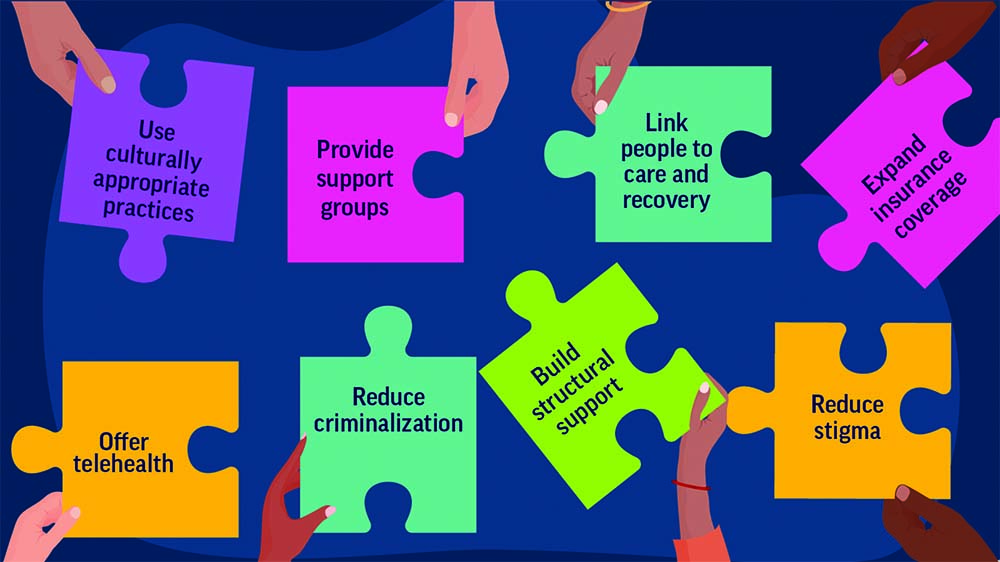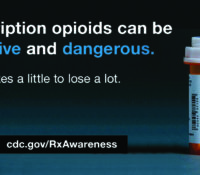Drug overdoses are preventable. The growing overdose crisis, particularly among people from racial and ethnic minority groups, requires tailored prevention and treatment efforts. These efforts should be designed to restore...
Drug overdoses are preventable. The growing overdose crisis, particularly among people from racial and ethnic minority groups, requires tailored prevention and treatment efforts. These efforts should be designed to restore optimal health for all. Public health professionals, healthcare providers, policy makers, and communities can consider:
- Improving access to treatment and recovery support services by offering telehealth and similar options to help people start and continue treatment and care over time. This is especially important for people from racial and ethnic minority groups, who encounter more barriers to accessing these vital services.
- Expanding insurance coverage can help.
- Offering structural support such as housing assistance, transportation assistance, and childcare to help reduce barriers to accessing and staying in treatment and recovery.
- Combining culturally appropriate traditional practices, spirituality, and religion, when appropriate, with proven substance use disorder treatment.
- Creating culturally tailored campaigns that help raise awareness and reduce stigma around treatment and recovery.
- Offering support groups and opportunities for community connection to help reduce stigma and mistrust.
- Reducing criminalization of substance use disorders.
Linking people to treatment from a variety of settings (such as primary care, syringe services programs, and healthcare settings during incarceration) and through trusted messengers, which helps people to continue treatment over time.
Improving access to programs that address past and prevent future trauma and other risk factors for substance use.
(Source: https://www.cdc.gov/vitalsigns/overdose-death-disparities/)




























